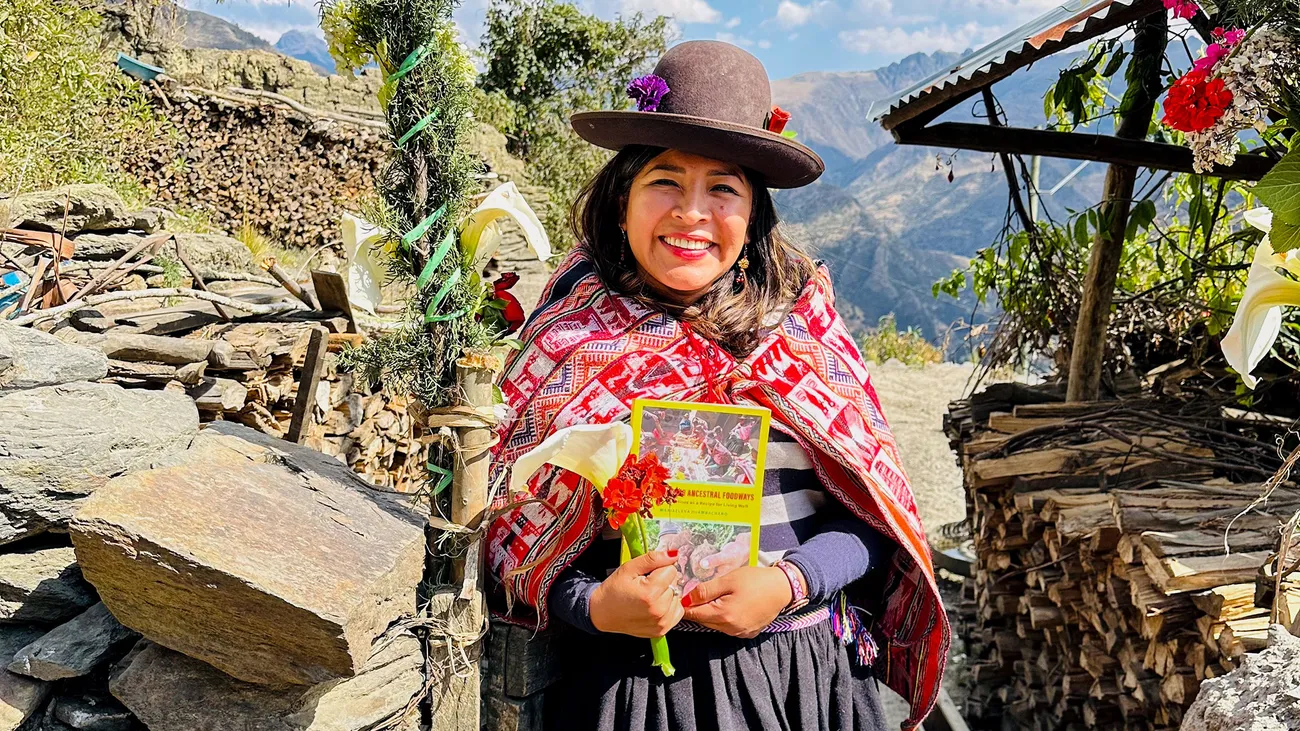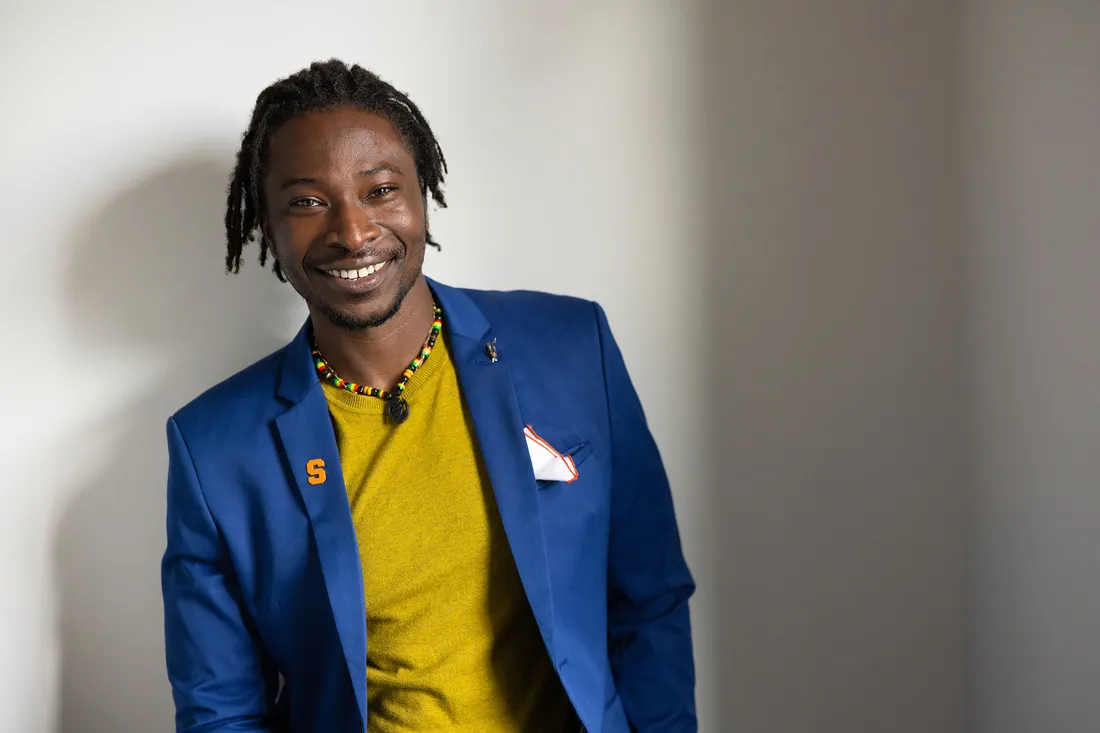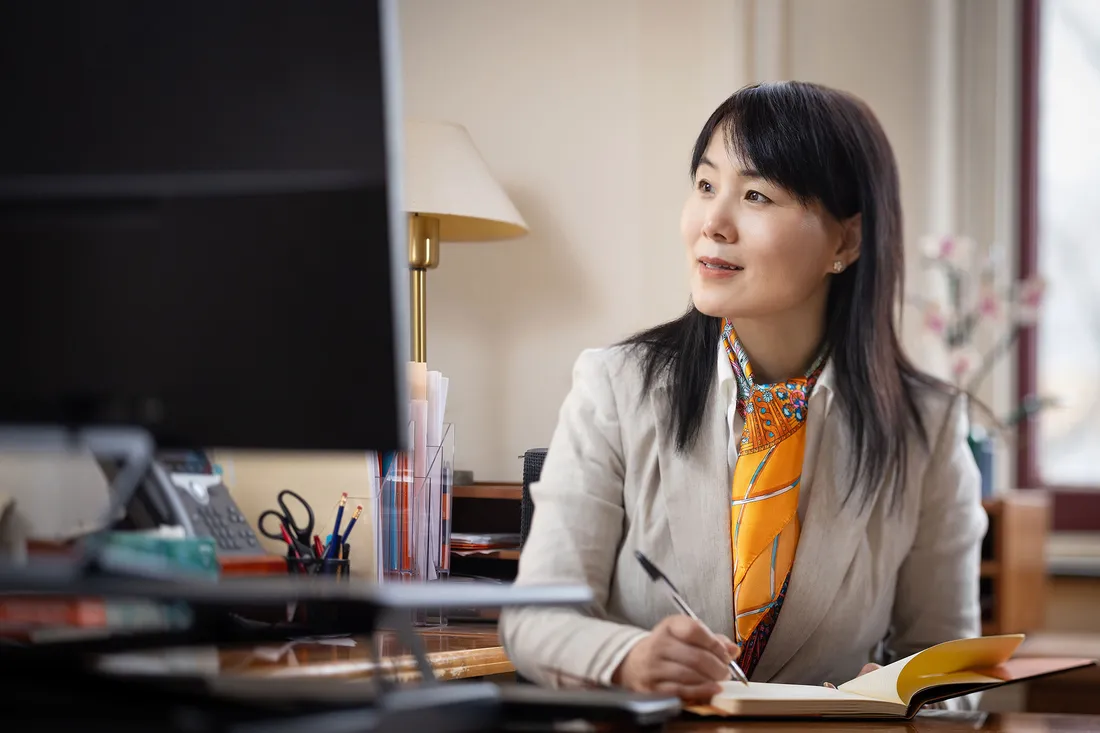Camote. Kūmara. Sweet potato.
When Mariaelena Huambachano moved from Peru to New Zealand as a teenager, she discovered that this humble root vegetable carried profound meaning in both her Quechua heritage and in Māori culture—no matter what name it went by.
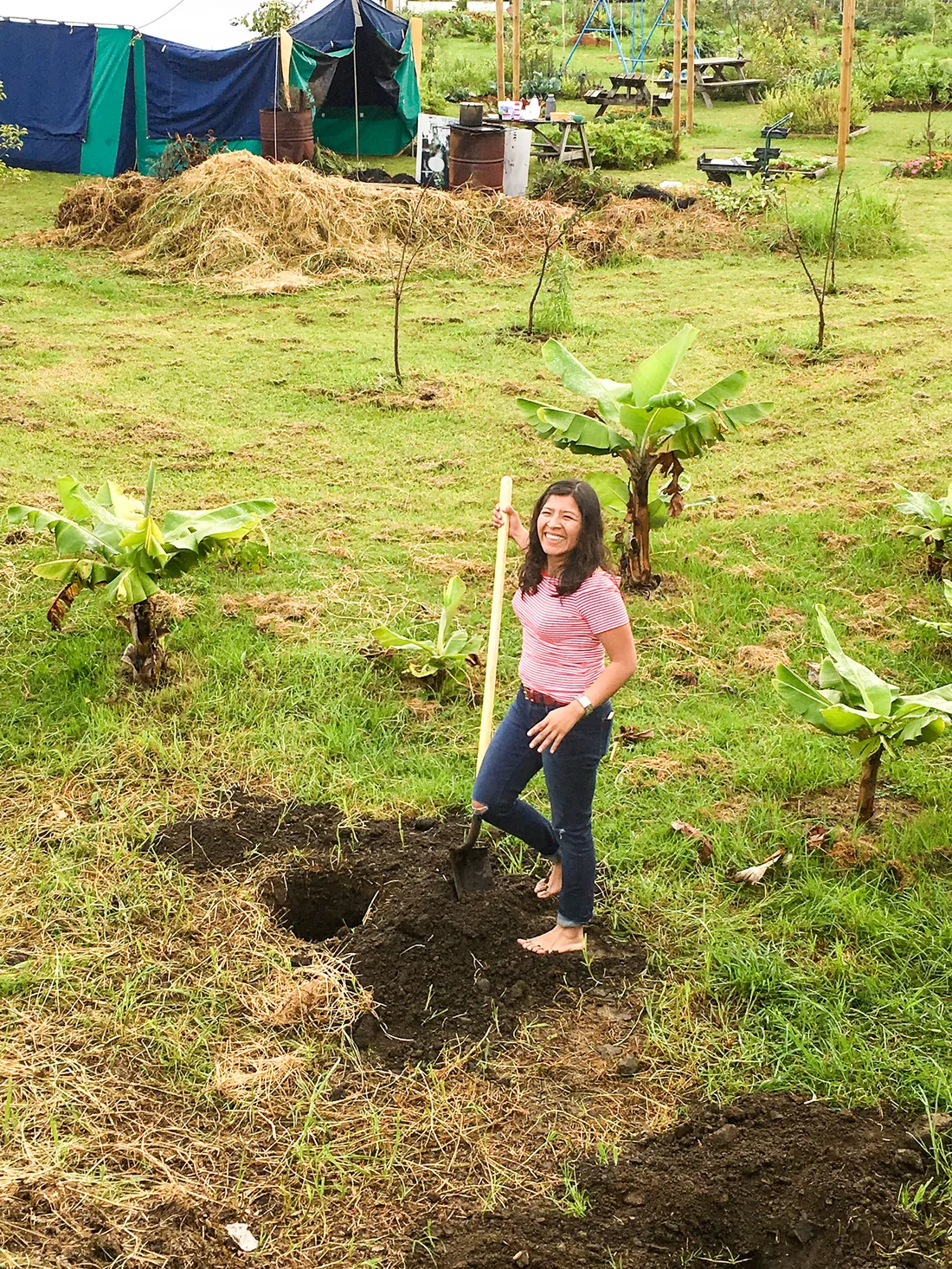
Associate Professor Mariaelena Huambachano connects with the land, honoring the deep relationship between food, community and spiritual well-being.
As she grew closer to the Māori people of Aotearoa—the Māori name for New Zealand—Huambachano recognized deep parallels to her own Indigenous roots. She found kinship built around food, land and ancestral knowledge that transcended continents.
“Food is not just about eating—it’s about relationships and responsibilities: with the land that nourishes us, with the community that shapes our cultural identity and with the spiritual world that connects us,” Huambachano says. “These food systems are deeply tied to Indigenous concepts of wellbeing, reciprocity and respect.”
Now an associate professor of Native American and Indigenous studies in Syracuse University’s College of Arts and Sciences and an advisor with the Center for Global Indigenous Cultures and Environmental Justice, Huambachano has become a leading voice in Indigenous food sovereignty. She’s the author of Recovering Our Ancestral Foodways: Indigenous Traditions as a Recipe for Living Well, and through her teaching, research and community partnerships, she’s working with students, Indigenous communities, grassroots organizations and allies globally to preserve and restore traditional foodways.
The Khipu Model
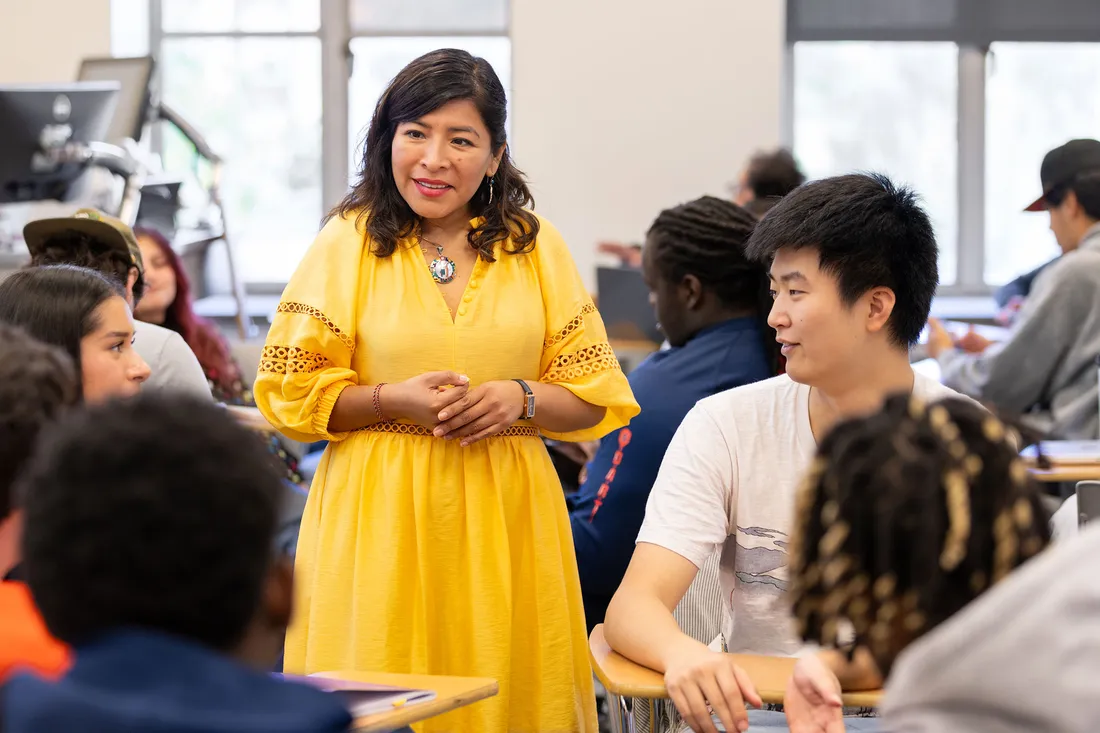
In the classroom, Huambachano inspires students to approach research with cultural humility and collaboration. “It’s about connection, not data collection,” she says.

Through her research, Huambachano partners with communities to center relationships, cultural preservation, and respect in every stage of her work.
Huambachano’s research method puts relationships at the forefront. Named after the millennia-old khipu—a knotted cord system used by the Andean people of Peru to record history, geography and statistics—this model embodies principles of cultural humility, collaboration, care and Indigenous science.
“I spent years in both communities, understanding stories and practices but also participating: planting, cooking and celebrating with them,” says Huambachano, who teaches Indigenous Food Sovereignty and Indigenous Research Methodologies.“In my teaching, I encourage students to think about research differently. We talk about doing research with communities, not on them,” she explains. This approach applies not just to Indigenous studies, but to all work with vulnerable communities. “You have to listen deeply—to the people, to the land, to the silences in between. It’s about connection, not data collection.”
Indigenous Food Sovereignty
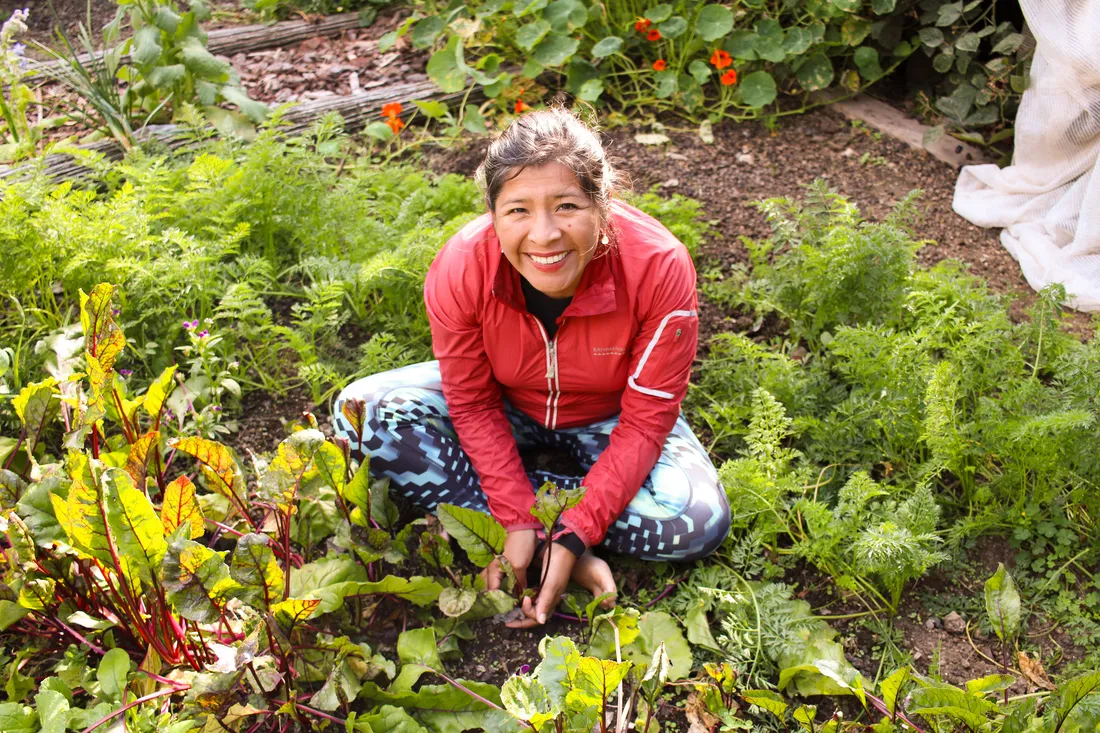
In collaboration with the Onondaga Nation, Huambachano helps rematriate ancestral seeds—reviving Indigenous food sovereignty and reconnecting communities to their agricultural roots.
At the heart of Huambachano’s work is Indigenous food sovereignty—a concept that extends far beyond food banks and grocery stores.
“It’s not just about access to food—it’s about the right to culturally appropriate, spiritually rooted and ecologically sound food systems,” Huambachano explains.
Through centuries of colonization, many Indigenous lands have been stripped of their native seeds and ancestral foods. The result has been food insecurity, malnutrition and widespread health issues across Indigenous communities.
Huambachano has become actively involved with local and global seed rematriation projects—efforts to reclaim ancestral seeds and return traditional foods to Nations who once cultivated them in abundance. Collaborating with the Onondaga Nation, Seed Keeper Angela Ferguson, the grassroots network Braiding the Sacred and the Environmental Humanities Network, the movement is blossoming—reaching far beyond North and South America to inspire global renewal.
“There are Peruvian seeds in a botanical museum in Atlanta,” Huambachano says. “We’re working on bringing those back to Peru so communities can grow and reconnect with them.”
A Global Voice
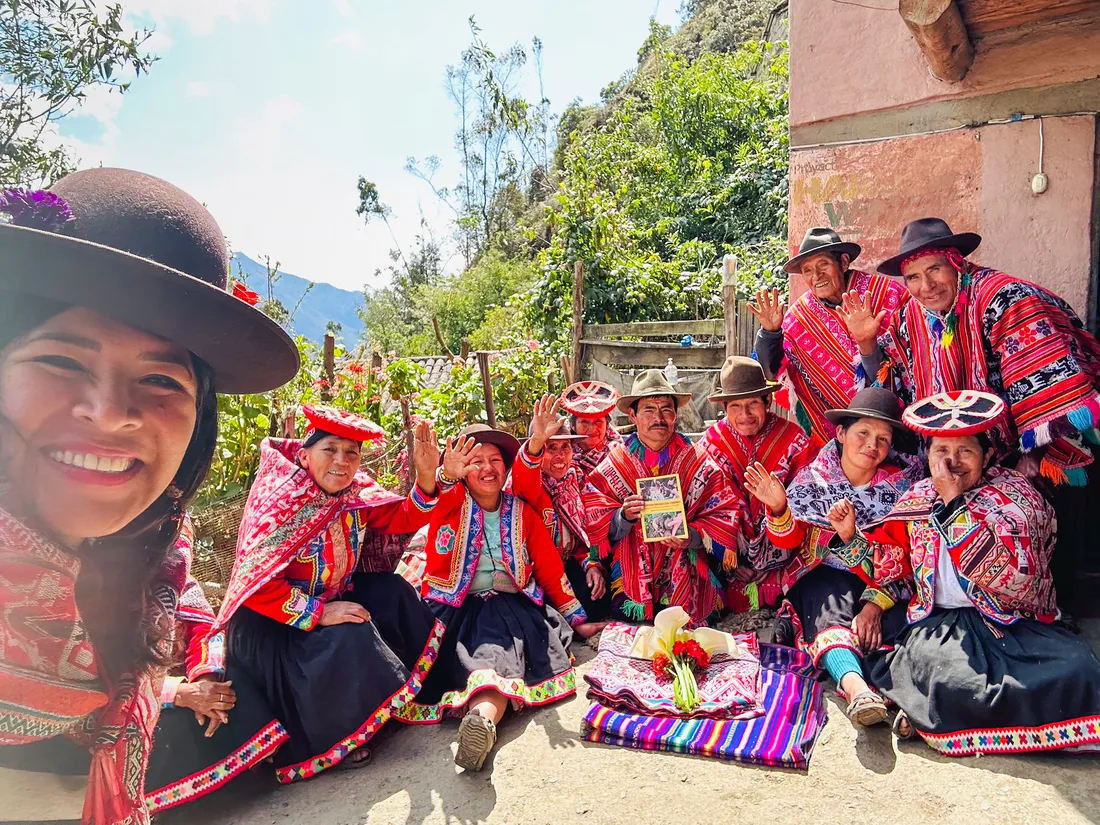
Huambachano celebrates the launch of her first book, Recovering Our Ancestral Foodways, with her Quechua community during a sacred sunrise ceremony in the Andes.
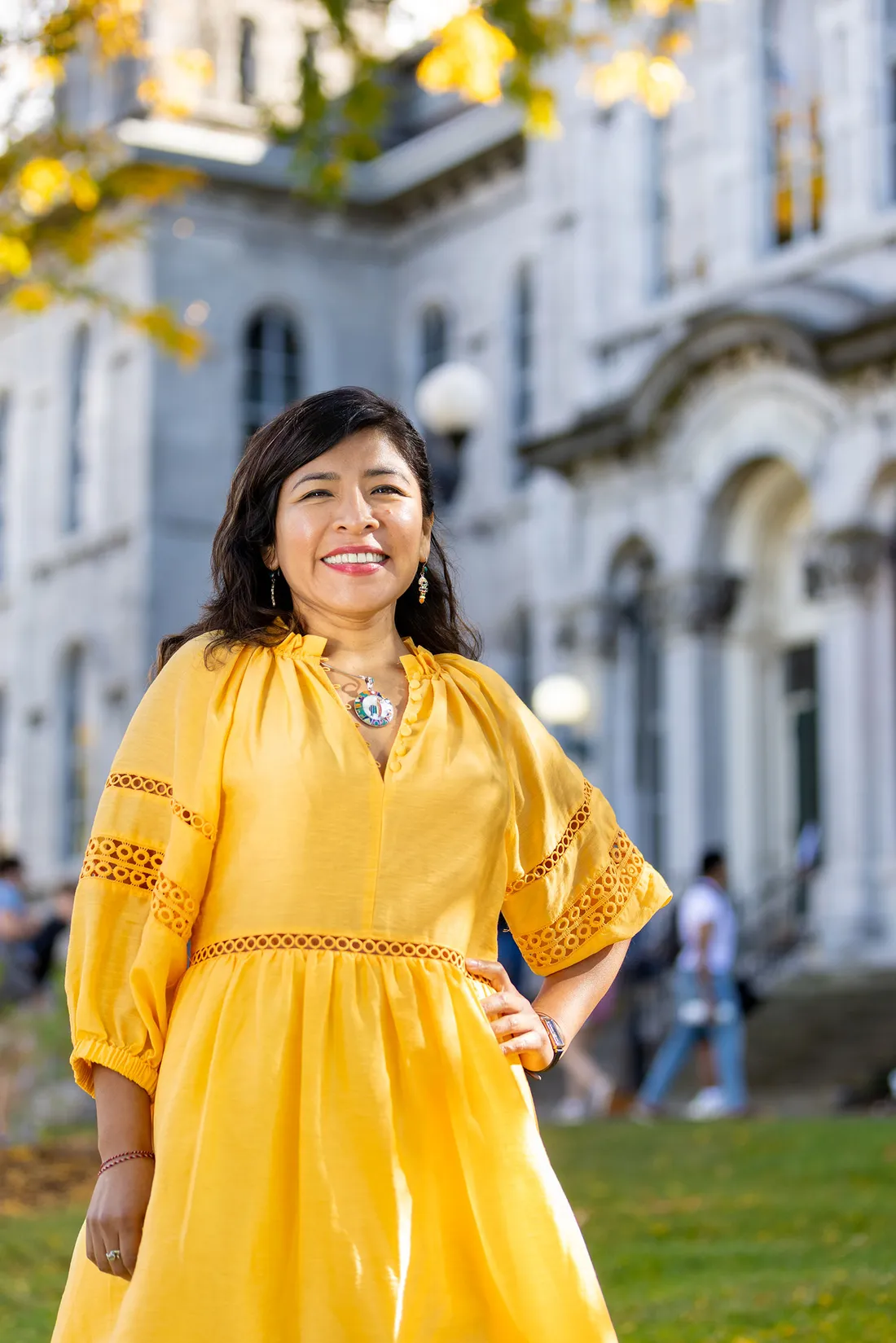
As a researcher and educator at Syracuse University, Huambachano brings Indigenous knowledge into global conversations on sustainable food systems and environmental stewardship.
From sunrise ceremonies in the Andes to policy panels at the United Nations, Huambachano keeps a full travel schedule. Beyond nurturing relationships with communities in Peru, New Zealand and around the globe, she brings Indigenous science to global platforms—speaking at universities and events for UNESCO and the Food and Agriculture Organization—and serves on global food and environmental task forces such as the Intergovernmental Science-Policy Platform on Biodiversity and Ecosystem Services, bridging Indigenous and Western science through respect and mutual collaboration.
“Currently, I’m involved in local and global efforts to ensure Indigenous voices are part of policy development and sustainability conversations,” Huambachano says. “It’s my labor of love and I honor the work of our elders and ancestors who paved the way.”
Rooted at Syracuse, Huambachano continues expanding her impact locally and globally. Through teaching and research, she equips students with tools to approach community work with respect, care and cultural awareness.
From seed rematriation to policy advocacy, her work positions Syracuse University as a living space where Indigenous knowledge is not only studied but actively practiced, honored and shared—planting the seeds of respect, resilience and renewal for generations to come.

